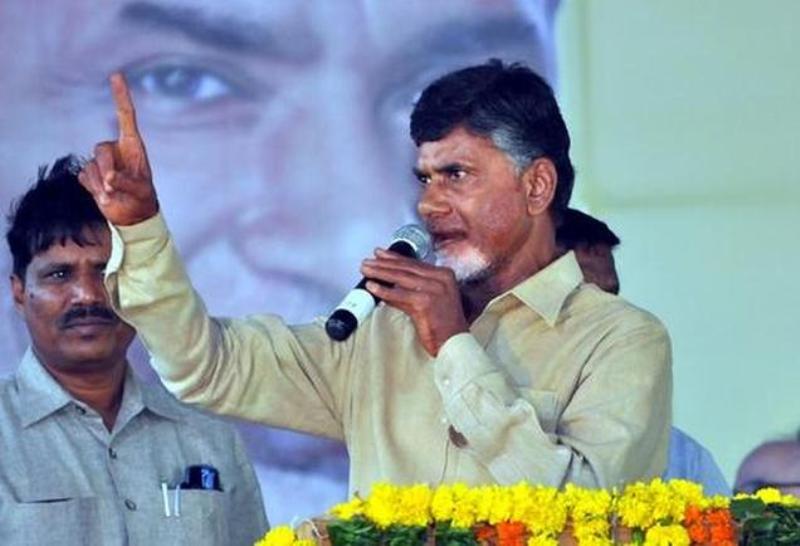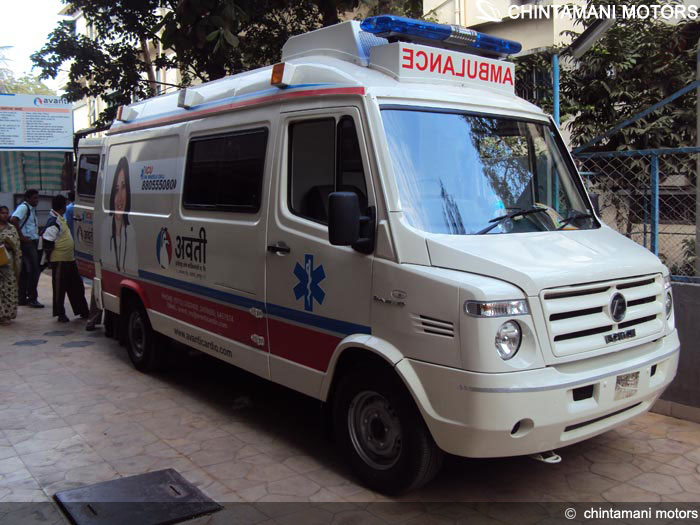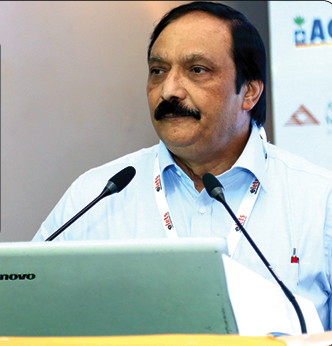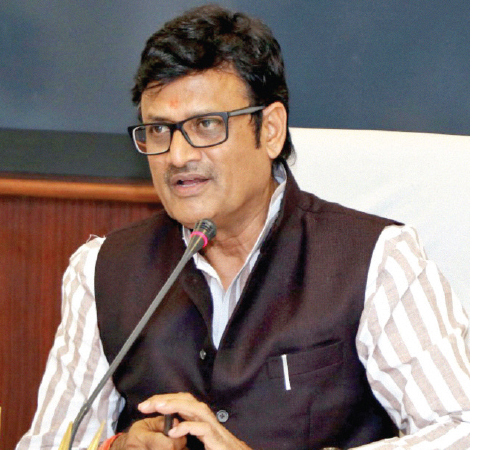
It is the priority of the state government to enable the reach of the local and global healthcare discoveries and initiatives to the people of Rajasthan , says Medical, Health & Family Welfare Minister of Rajasthan, Rajendra Singh Rathore in conversation with Kartik Sharma of Elets News Network (ENN)
What are the challenges for the healthcare sector in the state of Rajasthan?

Our government has been in power for the last 18 months and I have been the states Medical, Health & Family Welfare Minister previously as well. I am aware of the healthcare priorities of the state of Rajasthan, but more challenges have surfaced with changing times. Today swine flu, dengue, ebola and cancer have become common diseases and it has become important to tackle them along with the traditional healthcare necessities in the state. We see the paucity of doctors in the health sector as a major issue and have taken a number of steps to deal with it. Rajasthan is geographically the largest state of India with a varying population density, which makes it quite challenging to create an effective healthcare mechanism. It is the priority of the state government to enable the reach of the local and global healthcare discoveries to the people of Rajasthan. It is also a challenge to make the national health programmes reach out to the right beneficiaries.
What steps are you undertaking to strengthen the healthcare services in the rural areas of Rajasthan?
A number of important budgetary announcements were made by Honourable Chief Minister in the budget to strengthen health services in the rural sector. Development of primary health centres on the PPP model, to increase participation of the private sector in investigative services, and to strengthen the ASHAs more will be the primary focus of the state. Also, we have implemented programmes to reduce the maternal mortality rate and malnutrition in the state that include initiatives like celebrating Safe Motherhood Day and to encourage safe pregnancy through these initiatives. We have plans to use community based techniques to remove malnutrition from the state and for this we have taken support from organisations of international repute along with the Rajasthan Government to show us the way.

There was an intense investigation campaign (Saghan Nirikshan Abhiyaan) that was carried out for the healthcare services in Rajasthan last year. What are your views on such investigations that keep on happening on a regular basis?
What made the campaign unique was that all the findings of the investigations were compiled using information technology and uploaded on a website. Then weaknesses of every institute were identified individually using software and the ones that could be rectified easily were improved through an available fund.
Development of primary health centres on the PPP model, to increase participation of the private sector in investigative services, and to strengthen the ASHAs more will be the primary focus of the state.
A follow-up campaign was initiated in February this year, which helped in removing most of the shortcomings. A proposal is being formulated that will help the concerned department get the funds from the state government to provide budgetary support to weed out the remaining shortcomings. Any further budgetary allocations will be taken care of in a proposed time frame. The entire campaign feedback is taken through video conferencing for analysis. We announced the third round of investigation campaign on April 23, 2015.
Though the government in Rajasthan is implementing programmes quite well, shortage of medical staff is a big roadblock. Could you please elaborate on the measures taken by the state government to tackle this issue?
We are trying our best to deal with the issue of shortage of medical staff in Rajasthan. I have been appealing to the doctors in every possible public platform to serve the poor and certain policy measures undertaken by us are giving us good results too. We began with walk-in interviews and I am happy to tell you that in the last few months, because of this initiative, we have been able to bring in 400 doctors.
To tackle the absence of super specialists, we are trying to implement a far reaching initiative under which officers of the state health department are being trained in important subjects. This course began in February 2015 and has 270 medical practitioners undergoing training in ten subjects. To inspire medical staff in high priority districts and tribal districts, hard duty allowance is being provided since November 2014, which has been beneficial. Rajasthan has relatively lesser number of medical colleges, thus, it is important that in the coming times we open more medical colleges and train more doctors. The efforts are on in the state on a war-footing. Along with these steps, we will also be able to pass on benefits of health insurance through private players to the people of Rajasthan.
The National Child Healthcare Programme Rashtriya Bal Swasthya Karyakram (RBSK) in Rajasthan has been giving good results. What will be your strategy for the initiative for the year 2015-16?
The National Child Healthcare Programme was announced in the year 2013-14. Butnot much work was done during the previous government rule.. However, in the year 2015-16, under this scheme, through 250 mobile health squads, almost 22 lakh children were provided medical examination and after investigating 30 different diseases, almost one lakh children were marked for having one ailment or the other.
We set an example for the country to follow in the year 2014-15 when we linked the online payments of 40,000 ASHA workers directly to their bank accounts
The real task is not just to identify the ailment but also provide the right treatment. For this, the village children were taken to the nearest hospital using the ambulance network and further to the district hospital if need be. Children were provided on the spot treatment by putting up 200 health camps while the ones with even serious ailments are being taken to medical colleges and private medical institutes for treatment. Therefore, many children with heart problems, children with cuts on their tongue-lips, hearing disabilities, blindness by birth were successfully operated upon. This year too we will try and screen children for other diseases and make healthcare services reach out to the children who are yet to get these services.
Rajasthan has come up as a frontrunner state that has used IT to improve healthcare services. What are the new avenues that the government is exploring in this field in the coming times?
We had set an example for the country to follow in the year 2014-15 when we linked the online payments of 40,000 ASHA workers directly to their bank accounts. It was a difficult task but we did it in record time. This initiative gained much popularity and we still have other states coming to have a look at this initiative.
Seeing the success of this programme, Honourable Chief Minister has directed the department to transfer the benefits of the safe motherhood intervention received under the organised pregnancy programme and also of the Shubh Lakshmi Yojana directly to their bank accounts. I am happy to share that all the necessary arrangements have been made in this regard and very soon we will be competent enough to be able to transfer benefits under both the schemes in a transparent manner. We have been using information technology to track ambulances and have been taking penalties from the service providers in case of any service lapse. Work has already been started to track the equipment of 3,000 hospitals under the E-Upkaran Scheme. Voice messaging service is also being used to follow-up on malnutrition treatment centres and also on the children being discharged from the Sick Newborn Care Unit (SNCU).
Hospital Protection Force is a unique and noble initiative of yours. Could you tell us about the specialties of this project?
Scheme of providing free medicine and check-ups is adding a lot of pressure on the medical institutes in the tertiary region. We are also seeing an increase in the number of cases where family members of patients have been clashing and physically assaulting the medical staff. It is imperative to build up the confidence of the medical staff and also provide them a secure environment. My department had a clear consultation with the state Home Department and has started this initiative in the prominent medical colleges and hospitals in Rajasthan, which includes Sawai Man Singh Hospital of Jaipur. Based on the feedback of this programme, we will further think of increasing the outreach of this initiative.
Be a part of Elets Collaborative Initiatives. Join Us for Upcoming Events and explore business opportunities. Like us on Facebook , connect with us on LinkedIn and follow us on Twitter , Instagram.













